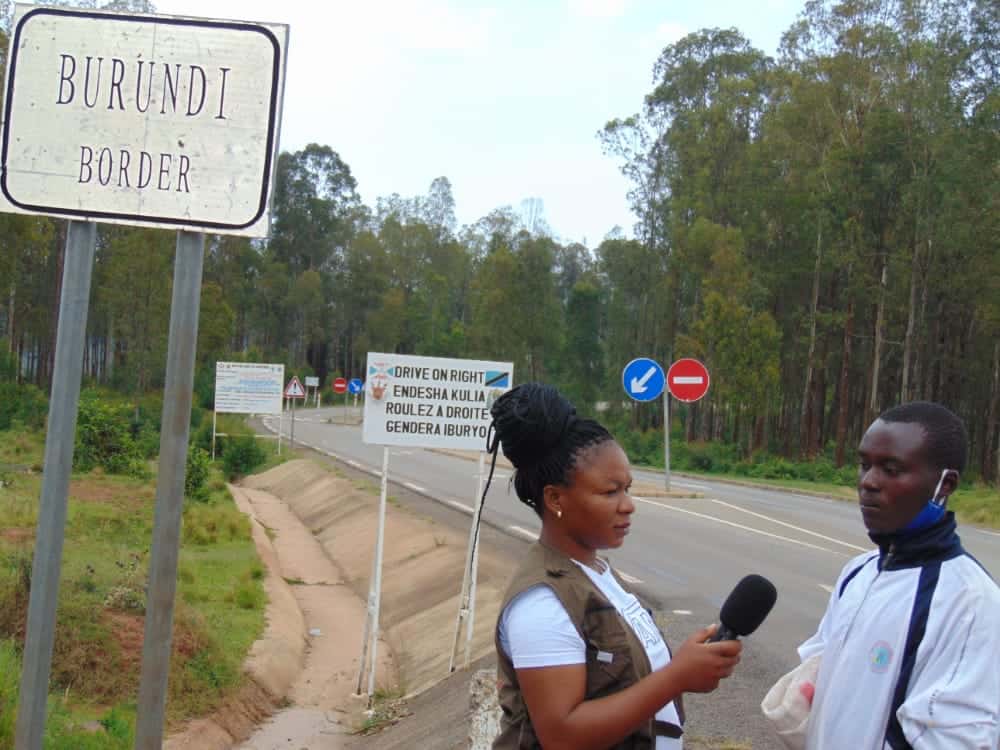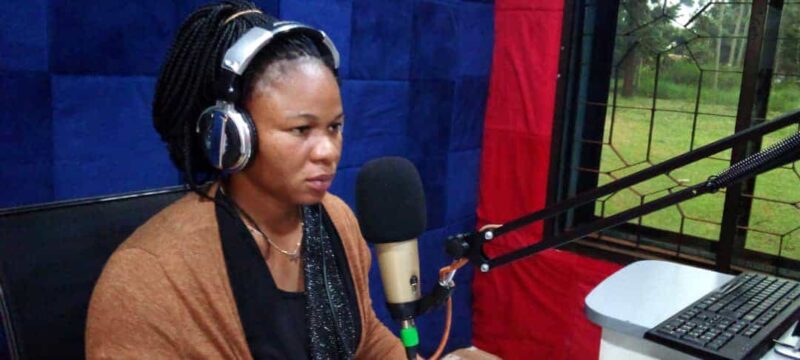By Alakok Mayombo, Internews Senior Media Trainer
Anna Matenga is a producer and presenter at Kwizera Radio in the district of Ngara. She has been covering the nearby borders with Rwanda and Burundi for several years and reported on many minor stories about illegal immigration. But recently she stumbled onto something much bigger.
“I noticed a truck and got curious. Someone tipped me off that it was full of immigrants. I knew if I went any closer to the truck, I’d get into trouble with the traffickers, so instead, I contacted immigration officers who were nearby, and we went together.”
Anna says when the truck was opened, what she saw stunned her.
“Thirty-nine men, women, and children were crammed together, inside! Some were quite sick and with no chance of help. I’ve been a journalist for nine years, but I’ve never seen anything like this.”
In fact, this was the largest number of immigrants ever apprehended in Ngara. Some were taken back to their home countries, while the traffickers faced charges in court. According to District Immigration Officer Salehe Mudrikati, a follow-up operation revealed the bigger picture.

“We uncovered a people-trafficking syndicate operating out of a local bus station. We’re still getting isolated individual cases, but Anna’s story seems to have helped reduce the flow.”
People are trafficked to Tanzania as a cheap source of labor. “Most illegal immigrant women come with their small children due to economic hardship back home. They have no land, nowhere to build a house, and they earn meagre wages as laborers in Ngara,” says resident Celestina Ntosha.
Anna says attending Internews’ investigative journalism training sessions helped her improve her writing and reporting skills. This has been useful for her career as she plans to become an international journalist.
“I learned how to approach stories properly, how to make an impact. Now I have a better sense for news, especially in rural areas. Plus, these days I cover all sorts of issues that would not have interested me in the past. And it was the training on investigative journalism that really gave me the confidence to navigate a dangerous story safely.”
Anna’s reporting seems to have had an impact. She used to cover up to three court cases per week on illegal immigration, but now they are far less frequent.
Boresha Habari project in Tanzania is funded by USAID and implemented in partnership with FHI 360. It aims to provide an open and inclusive environment in which media and civil society give accurate and impartial information to promote participation, inclusion, and accountability.
